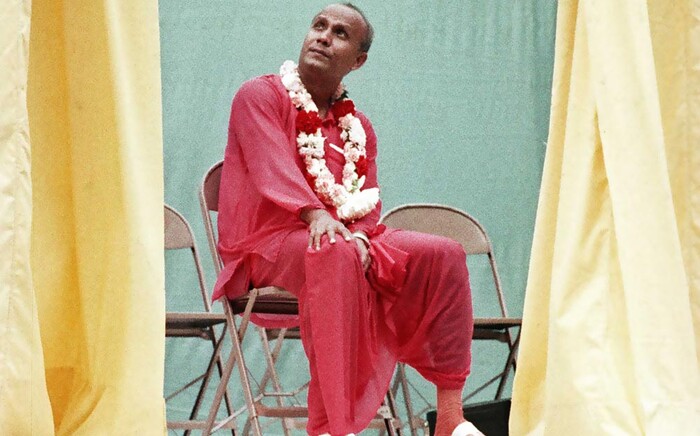Stories
First-hand experiences of meditation and spirituality.

How I learned from Sri Chinmoy
Pradhan Balter Chicago, United States
The spiritual life is normal to me
Shankara Smith London, United Kingdom
Learning to love songs ever more
Patanga Cordeiro São Paulo, Brazil
Akuti: a pioneer-jewel in our Centre
Akuti Eisamann Connecticut, United States
Muhammad Ali: I was expecting a monster, but I found a lamb
Sevananda Padilla San Juan, Puerto Rico
President Gorbachev: a special soul brought down for a special reason
Mridanga Spencer Ipswich, United Kingdom
In the Right Place, At the Right Time
Eshana Gadjanski Novi Sad, Serbia
'When you perform for me, always choose devotional songs.'
Gunthita Corda Zurich, Switzerland
People see something in Guru and want to be part of it
Saraswati Martín San Juan, Puerto Rico
How sports and fitness became part of our spiritual life
Banshidhar Medeiros San Juan, Puerto Rico
A demonstration of the Master’s occult powers
Arpan De Angelo New York, United States
A Flame in my Heart
Adesh Widmer Zurich, SwitzerlandSuggested videos
interviews with Sri Chinmoy's students

How can we create harmony in the world?
Baridhi Yonchev Sofia, Bulgaria
What drew me to Sri Chinmoy's path
Nikolaus Drekonja San Diego, United States
Getting through difficult times in your meditation
Banshidhar Medeiros San Juan, Puerto Rico
What meditation gave me that I was missing
Purnahuti Wagner Guatemala City, Guatemala
Running the world's longest race
Jayasalini Abramovskikh Moscow, Russia
How I became interested in meditation
Abhejali Bernardova Zlín, Czech Republic






